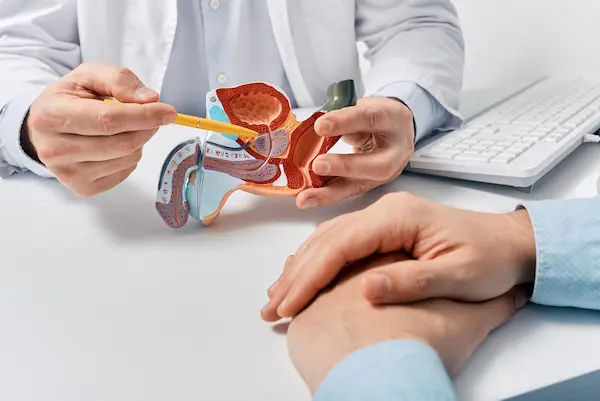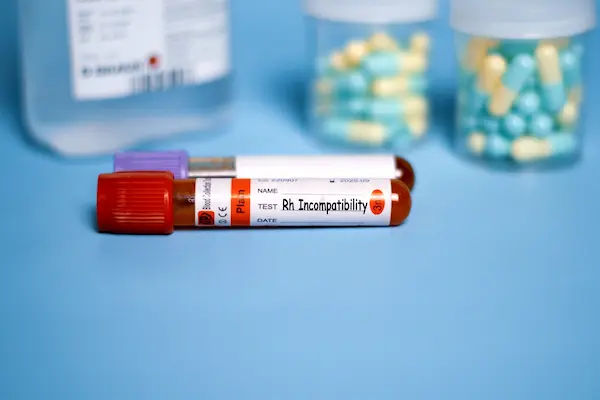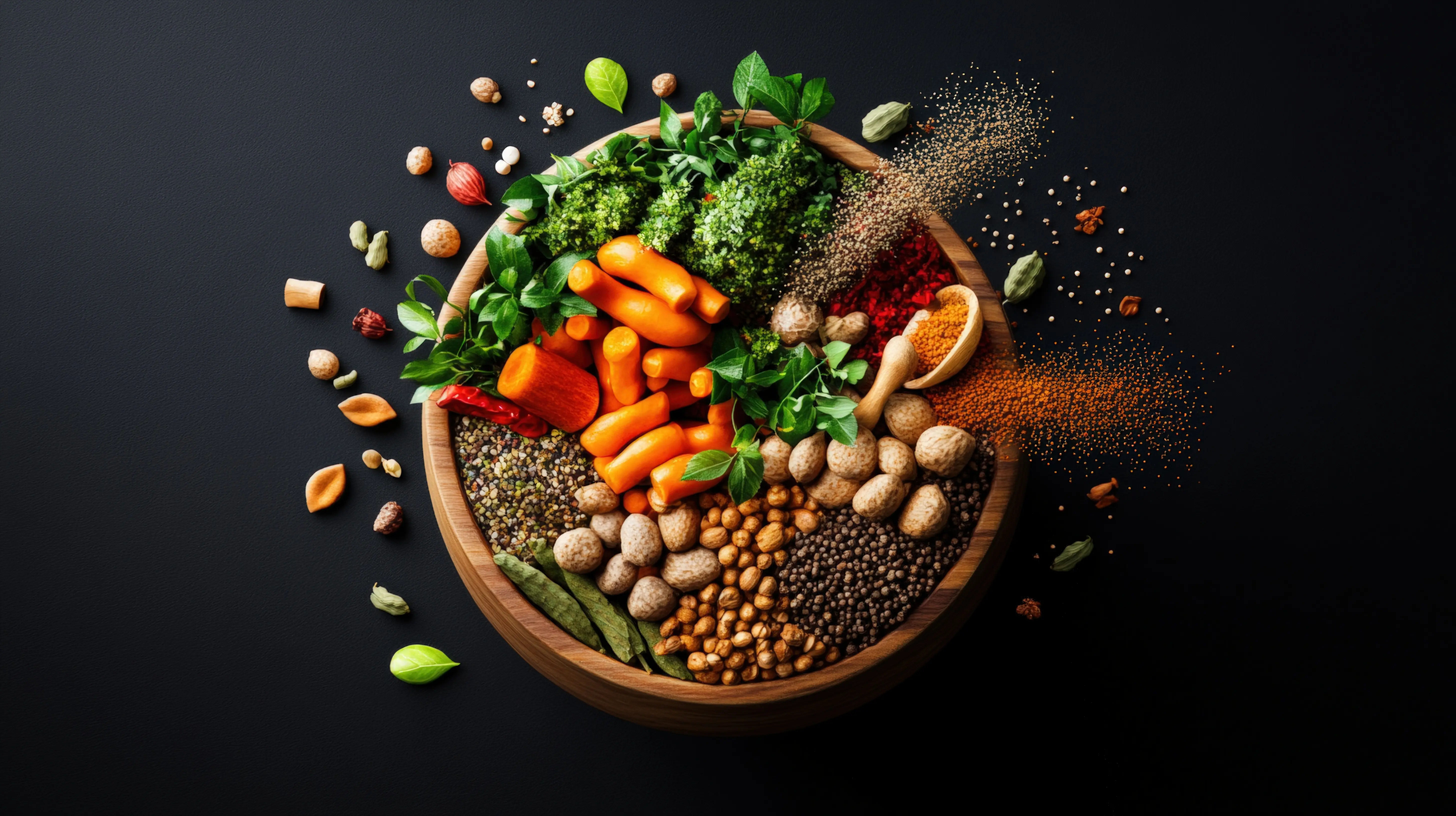How to Increase Dopamine Levels Naturally for Better Focus
Looking for a safe dopamine boost? Discover simple habits that sharpen focus and support brain health: sleep, exercise, nutrition, daylight, and stress control.

Written by Dr. Siri Nallapu
Reviewed by Dr. D Bhanu Prakash MBBS, AFIH, Advanced certificate in critical care medicine, Fellowship in critical care medicine
Last updated on 13th Jan, 2026

Introduction
If you’ve been feeling unfocused, unmotivated, or mentally foggy, you’re far from alone. Many people experience fluctuations in clarity, drive, and concentration, and a key player behind these shifts is dopamine. Dopamine is one of the brain’s most influential neurotransmitters, helping regulate motivation, attention, movement, learning, and mood. While there is no instant method for “boosting” dopamine, a consistent routine built around sleep, movement, nutrition, daylight, stress regulation, and meaningful activity can steadily support healthy dopamine signalling and overall brain function. These habits are simple, practical, and grounded in the best available evidence.
Anyone who experiences persistent low mood, loss of interest, severe inattention, or movement-related symptoms should seek medical guidance, as these may reflect underlying conditions that require tailored care. Lifestyle strategies are helpful, but they do not replace professional assessment when symptoms interfere with daily life, relationships, or safety. Consult a Top General Practitioner for Personalised Advice
What is Dopamine, and Why Does it Matter for Focus and Brain Health?
Dopamine is a chemical messenger that allows nerve cells to communicate across brain circuits. Its role spans several essential psychological and neurological functions.
Key roles of dopamine
- Motivation and reward
- Attention and learning
- Movement coordination
- Mood regulation
Balanced dopamine signalling helps maintain sharper concentration, steadier drive, emotional balance, and mental flexibility. Although certain medical conditions may require medication to regulate dopamine, everyday lifestyle choices provide a powerful foundation for supporting these systems naturally.
Natural Habits That Support Healthy Dopamine Levels
Natural habits to support healthy dopamine levels are:
Prioritise sleep
Good-quality sleep reinforces brain chemistry, supports memory, enhances attention, and stabilises mood throughout the day.
Practical sleep-supporting steps
- Aim for 7 to 9 hours of sleep per night.
- Keep consistent sleep and wake times, including weekends.
- Get morning daylight to strengthen your body clock.\
- Create a calming wind-down routine with dim lights and reduced evening screen use.
Just a few nights of insufficient sleep can impair concentration, lower motivation, and disrupt emotional balance. Treating sleep as a non-negotiable part of health is one of the most immediate ways to regain clarity and steadiness.
Move your body most days
Movement is one of the strongest natural ways to enhance cognitive performance and mood. Regular physical activity supports the balance of brain chemicals, including dopamine-related pathways.
Evidence-aligned movement ideas
- Aim for 150 to 300 minutes per week of moderate aerobic activity or 75 to 150 minutes of vigorous movement
- Incorporate muscle-strengthening activities twice weekly.
- Use short 10 to 20-minute “movement snacks” when busy.
- Break up long sitting spells by standing or walking regularly.
Exercise strengthens both brain and body, enhancing motivation over time. Choosing enjoyable activities improves adherence, helping movement become a sustainable part of daily living.
Eat for dopamine production and brain health
Dopamine is synthesised from the amino acid tyrosine, which comes from protein-rich foods. A balanced approach to nutrition helps stabilise energy, focus, and mood.
Nutrition strategies that support brain chemistry
- Include protein at each meal: eggs, dairy, fish, poultry, tofu, beans, and lentils.
- Choose tyrosine-rich foods: eggs, dairy, poultry, fish, soy, and legumes.
- Include omega-3 fats: aim for two servings of oily fish weekly or discuss supplementation with a clinician.
- Choose fibre-rich carbohydrates such as vegetables, fruit, whole grains, and legumes.
- Add colourful produce for antioxidants and polyphenols.
- Stay well hydrated to reduce fatigue and cognitive slowdown.
A balanced lunch built around protein, fibre, and healthy fats can help maintain attention levels throughout the afternoon.
Get daylight and maintain a steady circadian rhythm
Light exposure is a major regulator of your biological clock. A well-supported circadian rhythm enhances sleep quality, mood, and daytime focus.
Simple circadian-supporting habits
- Get 10 to 30 minutes of natural light soon after waking.
- Dim lights in the evening and reduce bright screens before bed.
- Keep meals and exercise roughly consistent each day.
Manage stress and practise mindfulness
Chronic stress disrupts neurotransmitter balance, making it harder to think clearly, sustain attention, and remain motivated. Supporting the nervous system with calming practices helps regulate dopamine-related pathways and enhances resilience.
Stress-management practices that support mental clarity
- Try 5 to 10 minutes of daily mindfulness or slow breathing.
- Use the 4-7-8 breath: inhale for 4, hold for 7, exhale for 8, and repeat four cycles.
- Take brief “recovery breaks” during the day to stretch, walk, or step outside.
These small pauses help reset mental focus and prevent stress from accumulating, allowing you to return to tasks with greater clarity.
Enjoy music, creativity, and meaningful social time
Pleasurable and purposeful experiences activate reward pathways in the brain. These activities naturally support dopamine-related processes and enhance emotional well-being.
Everyday activities that enrich dopamine balance
- Listen to music you enjoy while doing routine tasks.
- Set aside 10 to 20 minutes for creative activities such as drawing, writing, crafting, or playing an instrument.
- Make time for supportive social interactions; strong relationships consistently correlate with better mental and emotional health.
Engaging in uplifting activities strengthens attention and motivation by encouraging healthy reward patterns.
Habits to Limit for a Steadier Dopamine System
Habits for a steadier dopamine system are:
Substances and behaviours that disrupt dopamine balance
Certain habits and substances can rapidly alter dopamine signalling, shifting the brain away from natural regulation.
Key habits to reduce or avoid
- Recreational drugs and nicotine.
- Misuse of prescription stimulants.
- Excess alcohol.
- Ongoing sleep deprivation.
- Overconsumption of ultra-processed foods and sugary snacks.
- Constant multitasking and digital overload.
These behaviours can create short bursts of stimulation followed by crashes in energy and focus. Reducing them helps restore steadier attention and mood.
What About Supplements?
Food-first approaches remain the most reliable foundation for supporting sustained dopamine function. Supplements can play a role for specific individuals but should be used thoughtfully.
Common supplements and what the evidence suggests
H4: L-tyrosine
- Acts as a building block for dopamine.
- May support performance during short-term stress.
- Does not reliably enhance everyday focus for most healthy adults.
- Requires medical guidance if you take thyroid medication, MAOIs, or have underlying conditions.
Omega-3 (EPA/DHA)
- Supports general brain health.
- It may be helpful if you rarely consume oily fish.
- Should be discussed with a clinician for appropriate dosing.
Probiotics
- Important for overall well-being, but evidence linking specific strains to improved focus or dopamine in healthy adults is limited.
- Prioritise a diverse, fibre-rich diet first.
Trends like “dopamine detoxes” often misrepresent how dopamine works. While you cannot detox a normal neurotransmitter, reducing overstimulating habits such as endless scrolling and replacing them with meaningful activities can positively reset reward patterns.
A Simple Plan to start today
Simple plan looks like:
Morning routine
- Get outside light within an hour of waking.
- Drink water to rehydrate.
- Eat a protein-rich breakfast to stabilise early energy.
Midday routine
- Take a brisk 10 to 15-minute walk.
- Build a balanced, protein-focused lunch.
Afternoon routine
- Use a 25 to 50 minute focus block with minimal digital distractions.
- Follow with a 5-minute stretch or breathing break.
Evening routine
- Exercise if you have not done so earlier.
- Connect with a friend or family member.
- Begin a calm, screen-free wind-down routine.
Night routine
- Stick to a consistent bedtime.
- Keep your sleep environment dark, cool, and quiet.
When to Talk With a Healthcare Professional?
Seek professional care when:
Signs that warrant professional guidance
- Persistent low mood, loss of interest, or thoughts of self-harm.
- Attention difficulties affecting school or work performance.
- New tremors, stiffness, or movement-related symptoms.
- Concerns about alcohol or substance use.
- Side effects or questions about neurological or psychiatric medications.
Conclusion
Supporting healthy dopamine function does not require extreme routines or restrictive methods. Instead, it flourishes through consistent, sustainable habits such as prioritising sleep, moving regularly, eating balanced meals, and exposing yourself to natural daylight. Stress management, supportive social relationships, and reduced overstimulation further strengthen dopamine-related pathways. Supplements can help in specific cases but should only enhance, not replace, foundational lifestyle practices. With steady commitment to these approaches, many people experience clearer thinking, improved motivation, and enhanced long-term brain health. Consult a Top General Practitioner for Personalised Advice
Consult a Top General Practitioner for Personalised Advice

Dr Suseela
General Physician
5 Years • MBBS
Bengaluru
Apollo Medical Center, Marathahalli, Bengaluru

Dr. Mainak Baksi
General Practitioner
13 Years • MBBS , MD (MPH)
Howrah
Mainak Baksi Clinic, Howrah
(50+ Patients)

Dr. Jawwad Mohammed Kaleem
General Practitioner
4 Years • MBBS
Hyderabad
Apollo 24|7 Clinic, Hyderabad

Dr. Md Yusuf Shareef
General Practitioner
8 Years • MBBS
Hyderabad
Apollo 24|7 Clinic, Hyderabad

Dr. Rohinipriyanka Reddy
General Practitioner
9 Years • MBBS
Hyderabad
Apollo 24|7 Clinic, Hyderabad
Consult a Top General Practitioner for Personalised Advice

Dr Suseela
General Physician
5 Years • MBBS
Bengaluru
Apollo Medical Center, Marathahalli, Bengaluru

Dr. Mainak Baksi
General Practitioner
13 Years • MBBS , MD (MPH)
Howrah
Mainak Baksi Clinic, Howrah
(50+ Patients)

Dr. Jawwad Mohammed Kaleem
General Practitioner
4 Years • MBBS
Hyderabad
Apollo 24|7 Clinic, Hyderabad

Dr. Md Yusuf Shareef
General Practitioner
8 Years • MBBS
Hyderabad
Apollo 24|7 Clinic, Hyderabad

Dr. Rohinipriyanka Reddy
General Practitioner
9 Years • MBBS
Hyderabad
Apollo 24|7 Clinic, Hyderabad
More articles from General Medical Consultation
Frequently Asked Questions
Q.What is dopamine, and can I test my dopamine levels?
Dopamine is a neurotransmitter involved in motivation, reward, attention, and movement. There is no routine clinical blood test that accurately reflects dopamine levels in the brain for healthy individuals. Clinicians use symptoms and medical history to guide evaluation.
Q.How long will it take to notice a difference from lifestyle changes?
Many people notice increased clarity and energy within days of improving sleep, movement, and nutrition. Larger changes typically build over several weeks. Consistency is the key.
Q.Can certain foods instantly raise dopamine?
No food creates an instant dopamine spike healthily. Protein-rich foods provide tyrosine, which supports dopamine production gradually. Balanced meals matter more than single ingredients.
Q.Is coffee a safe way to get a dopamine boost?
Coffee increases alertness mainly by blocking adenosine. Moderate intake can support focus, but excessive caffeine may worsen sleep or anxiety. Most people should avoid caffeine after mid-afternoon.
Q.Do I need supplements to improve focus?
Not necessarily. Most people benefit from lifestyle adjustments alone. Supplements like omega-3 or L-tyrosine may help specific individuals but should be discussed with a healthcare professional.




